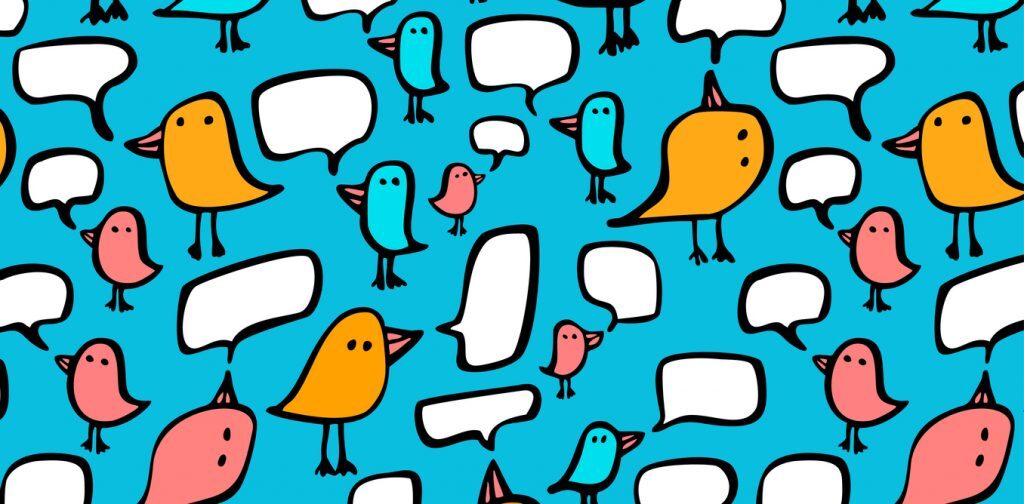In criticising Twitter for not growing its user numbers, critics have fundamentally misunderstood the role played by Twitter in our digital, mobile world. Wall Street and Silicon Valley’s obsession with growing its user base is a red herring. Twitter remains the most important social media network; not because of its lack of size or growth but because of its importance and influence.
Twitter’s nickname as “the front page of news” is still as apt as it always was. If you’re looking for breaking news, or commentary on big events like last week’s Nkandla Constitutional Court case, or to see if the EFF was thrown out of the State of the Nation Address, you don’t rush over to Facebook do you?
The hashtags #PayBackDaMoney or #FeesMustFall or #ZuptasMustFall aren’t trending on Facebook are they?
Wall Street’s obsession with quarterly results means tech firms are constantly chasing targets – often unrealistic – in both user and revenue growth. Steve Jobs famously thumbed his nose at this bizarrely self-serving rationale. Amazon CEO Jeff Bezos similarly eschews this quarterly treadmill, with both inspirational chief executives focussing instead on long-term objectives.
Twitter doesn’t have the same luxury as those two market leaders, and is in the midst of a crisis of investor and market confidence. Returning co-founder and now CEO Jack Dorsey has had his hands full trying to hang onto his top executives, trying to keep Twitter relevant against these unrealistic expectations, and juggling potentially ruinous rumours about how Twitter might change its famously linear, time-based stream of tweets with an algorithm similar to Facebook’s news feed.
Wall Street is bizarrely overlooking the numbers that it should be focussing on: in the fourth quarter, Twitter had revenue of $710m (an increase of 90% over the previous year’s quarter) while reducing its net losses to $90m (a decrease of 27%). Instead, the quarter-obsessed traders are fixated on the 2m drop in active monthly users (MAU) from 307m to 305m.
Facebook’s 1.59bn users are quantity. Twitter’s 305m MAUs are the equivalent of quality.
Twitter’s role in the world is vastly different from that of Facebook, the biggest social media network and the internet’s intranet where people share their family pictures, cat videos and play Words With Friends.
Twitter’s biggest challenge has been to get its new users to send a tweet – an estimated 44% – and one of Dorsey’s largest headaches. But it belies the fact that these “lurkers” – as the non-participating watchers are known in geek-speak – are still active consumers. The metric for user engagement should rather be how many people click on those short links for news, videos and animated gifs. Twitter’s critics are looking at the wrong metric. Twitter should stop trying to be Facebook and be the best Twitter it can be.
It’s as fallacious as believing Jacob Zuma’s sudden about-face that he always intended to #PayBackTheMoney; or that government would take its responsibility seriously for the much-needed broadband expansion the country so desperately needs. After the EFF had marched out of Parliament last Thursday chanting #ZuptasMustFall, Zuma mentioned the word “broadband” only twice; and then mostly to discuss how government installations would be the beneficiary of the R740m plan to connect them.
It’s no wonder that Zuma’s speech was devoid of key figures, given the #Presidunce’s inability to pronounce them the last time he tried to read a big number.
Expecting government to rollout broadband is a fallacy that should be dismissed. Our government simply doesn’t understand, nor care, about this new and vital form of economy enabler. Both Zuma and his predecessor Thabo Mbeki have shown a flagrant disregard for its importance; as evidenced by the startling lack of progress and Zuma’s splitting of the already dysfunctional department of communications into two. Only the private sector, which actually has skin in the game, understands how vital broadband is; and luckily isn’t bogged down by our lame duck president and his concomitant problems.
Like Twitter, we need to see this situation as it is, not as we wish it should be.
